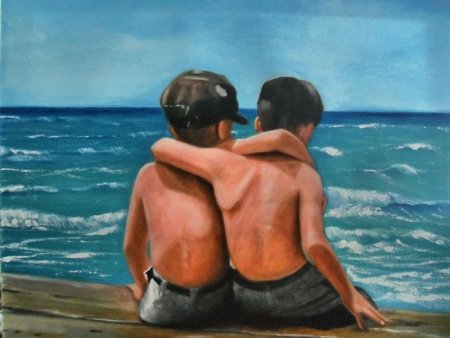 If you have a superstitious view of speaking of death or find morbid subjects disconcerting, you may not want to read this. The title should give you a broad hint as to my topic. If, however, you are curious about the stages of life looming upon your horizon, I recommend proceeding tentatively. At this point, even I cannot tell you where this piece is ultimately headed; I am just now rolling it out before me as a long, tightly wound carpet runner. The inauspicious end is folded in there somewhere, and it will pop out soon enough.
If you have a superstitious view of speaking of death or find morbid subjects disconcerting, you may not want to read this. The title should give you a broad hint as to my topic. If, however, you are curious about the stages of life looming upon your horizon, I recommend proceeding tentatively. At this point, even I cannot tell you where this piece is ultimately headed; I am just now rolling it out before me as a long, tightly wound carpet runner. The inauspicious end is folded in there somewhere, and it will pop out soon enough.
I have never cared for statements like, “I could, God forbid, be struck with a dreaded disease tomorrow,” or, “Who knows? I may be in a head-on…” No, never mind. Statistically, predictions like these may be true, but I don’t like to give the thoughts any advantage by articulating them. I have no intention to plan my funeral or participate in any way in my demise. That’s enough. I have already said more about this than I have ever dared to say before.
It’s just that this strange sensation that now sweeps over me with a greater frequency than I had ever wished for and lingers longer than I expected. Mysteriously, it beckons me to examine it. I would prefer not. Life, with all of its passion and action, intrigue and drama, has consumed me. I have always vowed to stay away from death, unless I was forced to deal with it in a purely factual way, or as a philosophical matter, or in some exposition on the scriptural view. I have never approached it with raw emotion in full personal exposure.
The death of my friends, however, is making me feel differently about all of this. I am not completely comfortable with the idea, but I find it impossible to be totally repulsed by passing from this life into the next when someone that I have spent hundreds of hours with, golfed scores of times with, and shared countless, heart-to-heart conversations with, has taken that step.
I guess that what I am trying to say is that, in some sense, a little of me died with them. If, in the give and take of conversation, we gave and took so much, then we fulfilled the definition of sharing. I miss that. I miss the reaction and response. I miss the subtle associations that they freely made, their humorous, and sometimes pithy elaborations, or the spirited rebuttals in which they contested almost any statement or circumstance that came along. I took such pleasure in their expressions that I find myself imagining what they would say. I probably can carry on a conversation with them in I mind that would closely approximate the one I would have if they were still living. Such is the reticulation of souls knitted together in friendship.
Settling into my topic now, and lacking a friend who will do this for me, I must take issue with myself. Losing a friend does not mean the loss of friendship. The friendship was nurtured and cultivated over the years. It began apprehensively in timid conversations. It grew in the satisfaction of each other’s company. It spread in multiple shared experiences. It became solidified in confidence and integrity. Finally, it found its roots in the mutual bearing of burdens. While death may suspend further deposits into that account, it can never rob me of that wealth already accumulated.
These thoughts do not inspire an obscene desire for death in me. To the contrary, they actually give me a greater appreciation for life, because it is the life I shared with my friends that makes their death so significant. Without an expansive experience of life, death would have little meaning for anyone. Death is not about death; death is ultimately about life. Death does not serve itself; death serves life. Death gives full accent and relief to the qualities of life, and forever crystallizes them in our minds. The heroes’ death—rather than life—may be celebrated, but it is because the extraordinary manner in which they died casts the light of admiration on some aspect of their character. Thus, it seems to me, the only way my death may be significant is if I pour so much energy and power into the life I live that I will become larger than life.
And so, I will live—boldly, memorably, with abandon—because I will die. I have no control over dying, but I have infinite control over living. Whatever experiences I can pack into my living, whatever meaning I can extract from my living, whatever impact I can deliver by my living, I will do it to the nth degree. True sadness is to die without ever having lived.
I must dream, and then I must follow my dreams.
I must think, for thinking brings depth, height and breadth to my existence.
I must participate, because that is where relationships are forged.
I must experiment, for that will challenge my unknown qualities and coax them to life.
I must live out loud, for then—in that distant hour—I can die with significance.